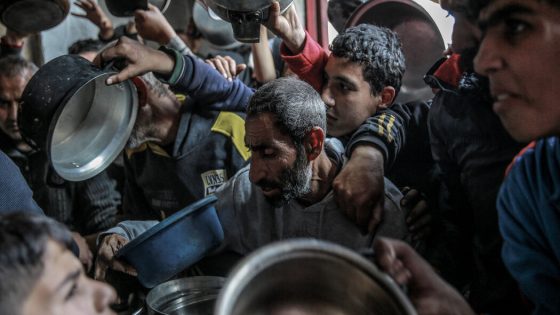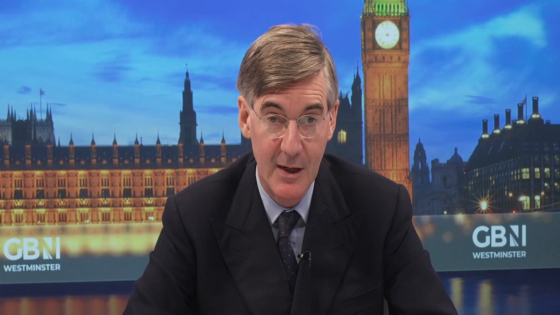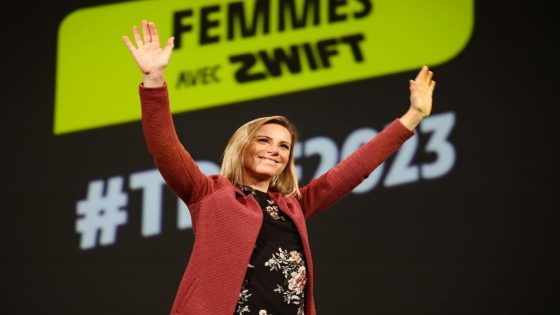Israeli negotiators have offered a significant concession in cease-fire talks with Hamas, signaling that they might be open to releasing high-profile Palestinians jailed on terrorism charges in exchange for some Israeli hostages still being held in the Gaza Strip, according to two officials with knowledge of the talks.
President Biden said Monday that he believed negotiators were nearing an agreement that would halt Israel’s military operations in Gaza within a week, though earlier in the day, the Israeli prime minister, Benjamin Netanyahu, was still talking about further military action.
Mr. Netanyahu said that the Israeli military had presented a plan to the war cabinet to evacuate civilians from “areas of fighting” in Gaza. He appeared to be speaking of Israel’s long-expected invasion of Rafah, the southern city where more than half of Gaza’s population is sheltering, many in makeshift tents.
Mr. Netanyahu did not disclose any details of the evacuation plan, and it was not clear whether he was using the prospect of an invasion as a cudgel to gain leverage in the negotiations. On Sunday, he said an invasion could be “delayed somewhat” if Hamas agreed to release Israeli hostages.
Many countries and international aid groups have warned that an invasion of Rafah could lead to mass casualties on top of the nearly 30,000 Gazans who, according to the territory’s health officials, have already been killed in the war.
Speaking with reporters in New York on Monday, Mr. Biden sounded optimistic about a deal to pause the fighting. “We’re close,” he said. “We’re not done yet. My hope is by next Monday, we’ll have a cease-fire.”
As hostage talks continued, the two officials said that Israeli negotiators had privately agreed to a proposal by the United States that would free five female Israeli soldiers being held in Gaza in exchange for the release of 15 Palestinians convicted of serious terrorism charges.
The officials spoke on the condition of anonymity because of the sensitivity of the discussions, which took place during a meeting with officials from Egypt, Qatar and the United States in Paris last week.
The Netanyahu government had previously avoided such a concession in part because the release of Palestinians tied to major acts of terrorism, even in exchange for Israeli hostages, might expose it to significant domestic criticism.
Asked about the negotiators’ position, Mr. Netanyahu’s office declined to comment.
The reported concession came as officials raced to reach a deal before the start of the Muslim holy month of Ramadan, in about two weeks. An Israeli delegation was expected to arrive in Qatar as soon as Monday to continue negotiations with international mediators.
The concession is part of a broader U.S. proposal that would allow for the release of 40 of the roughly 100 hostages who were captured in the Oct. 7 Hamas-led attacks and believed to be still alive in Gaza.
In addition to the five female soldiers, they include 35 civilians, some of whom are sick, wounded or frail. Seven of the 35 are women who Israel believes should have been released during the last cease-fire and prisoner swap in November. For the release of those seven women, Israel has proposed releasing 21 Palestinians from its jails, the same three-to-one ratio observed during the earlier exchange.
The release of male Israeli soldiers would be the subject of a separate negotiation, one of the officials said.
Hamas has not responded to the offer. The group has called for Israel to withdraw from Gaza, abide by a long-term cease-fire and free Palestinians held in Israeli jails in exchange for the remaining hostages.
But according to one of the officials, Israeli intelligence officers believe that Hamas’s leader in Gaza, Yahya Sinwar, has become more amenable in recent weeks to a deal that would allow for only a temporary truce, with the hope that it would become permanent.
Looming over the talks is the prospect of an Israeli incursion into Rafah, where more than one million people are sheltering. Many fled to the city after heeding Israeli orders to evacuate other parts of Gaza, and are struggling with a lack of food, water and medicine. Now there is nowhere safe in Gaza left for them to go, many say.
Nabil Abu Rudeineh, a spokesman for the Palestinian Authority’s leader, Mahmoud Abbas, condemned Mr. Netanyahu’s announcement of an evacuation plan, saying it confirmed Israeli’s intention “to storm the city of Rafah.” He called on the Biden administration to “stop this Israeli madness.” The authority helps administer the Israeli-occupied West Bank.
António Guterres, the U.N. secretary general, said that a full-scale Israeli offensive in Rafah, which serves as a major entry point for aid from Egypt, “would not only be terrifying for more than a million Palestinian civilians sheltering there, it would put the final nail in the coffin of our aid programs.”
Mr. Netanyahu’s office said in a statement that a new plan for providing humanitarian assistance to Gaza had been approved after reports that desperate Palestinians had ambushed aid trucks and taken food and other supplies. The government did not release the plan or give further details.
As Israel continued its offensive in Gaza, the Israeli military said that in Lebanon, its fighter jets had struck Hezbollah air defenses in the Bekaa Valley, an area about 60 miles from the Israeli border. The targets were deeper inside Lebanon than any area of the country struck by Israel in recent years.
Israel said that the strike was a response to a surface-to-air missile attack that downed an Israeli drone over southern Lebanon. Hezbollah had claimed responsibility for that attack.
At least two Hezbollah fighters were killed in the Israeli airstrikes and at least six other people were wounded, according to Bachir Khodor, mayor of the nearby city of Baalbek. Video from the scene provided by Mr. Khodor, which could not be independently verified, showed a building reduced to rubble and people on stretchers being loaded into an ambulance.
The Bekaa Valley, a fertile plain that runs along the Syrian border, has long been a stronghold for Hezbollah, the politically powerful Lebanese militia that has engaged in near-daily clashes with Israeli forces since Oct. 7. The fighting has displaced more than 150,000 people on both sides of the Lebanese-Israeli border and left hundreds dead.
The Israeli military later confirmed that it had killed a Hezbollah commander in a targeted strike earlier in the day in southern Lebanon. Hezbollah announced the fighter’s death in a statement, but did not provide details on his rank.
In a statement, Hezbollah said that it had retaliated by firing a rocket barrage at an Israeli army headquarters in the Golan Heights, the plateau that Israel seized in 1967. The Israeli military did not immediately comment on the statement.
The strikes came after the Israeli defense minister, Yoav Gallant, said on Sunday that the military was “planning to increase the firepower against Hezbollah,” and that it would not pause operations along the border with Lebanon even if there were a temporary halt to the fighting in Gaza.
“We will increase the fire in the north separately and will continue until the full withdrawal of Hezbollah and the return of Israeli civilians to their homes,” he said.
Hassan Fadlallah, a Hezbollah lawmaker in the Lebanese Parliament, said on Monday that the latest round of Israeli strikes would “not go without a response.”
Reporting was contributed by Peter Baker, Julian E. Barnes, Mike Ives, Nick Cumming-Bruce, Hwaida Saad, Euan Ward and Johnatan Reiss.
Source Agencies



